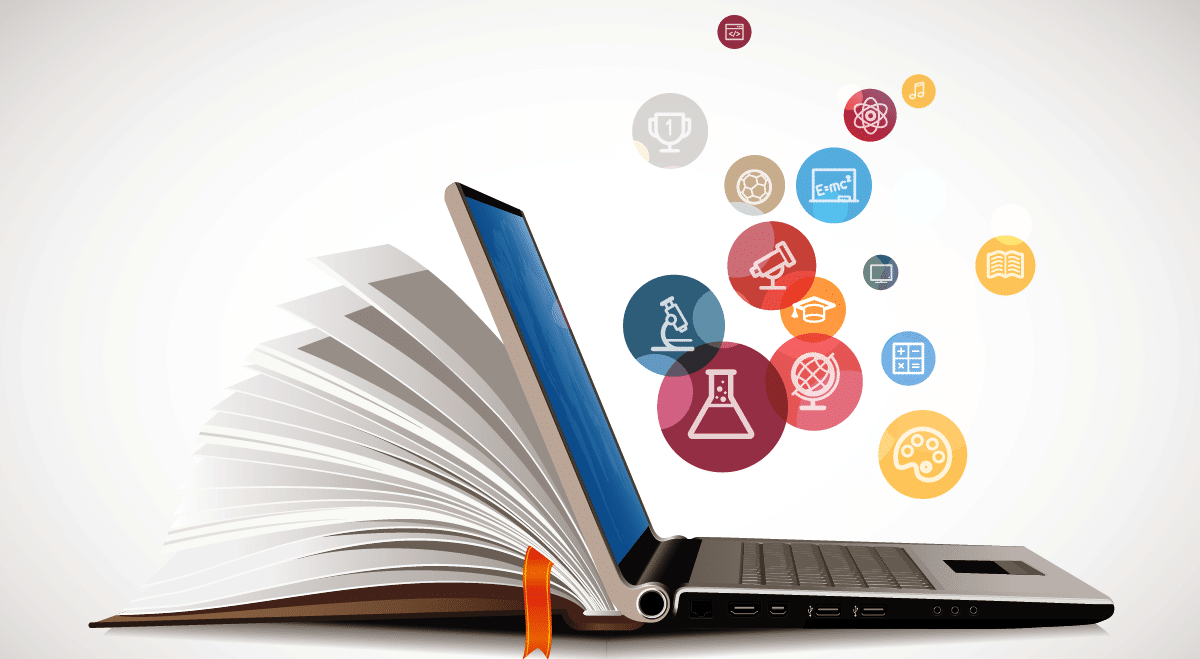Innovative Strategies for Enhancing Modern Technology Education and learning in Today's Discovering Atmospheres
The developing landscape of technology education necessitates a reevaluation of typical pedagogical strategies to much better gear up pupils for the intricacies of the modern globe. Innovative strategies, such as hands-on understanding experiences and collective project-based initiatives, play an important role in linking theoretical principles with functional applications. Additionally, the assimilation of on the internet sources and gamification can improve interaction and inspiration among learners. As we explore these methods, it ends up being critical to consider just how personalized discovering can even more enhance the instructional experience and promote a much deeper connection in between students and innovation. What might this mean for the future of education and learning?
Hands-On Learning Experiences
Hands-on knowing experiences function as a keystone in modern technology education, effectively bridging the space between theoretical understanding and functional application. These experiential tasks make it possible for pupils to involve straight with devices, software program, and modern technology, cultivating a much deeper understanding of principles that are often abstract in traditional classroom settings.
By incorporating hands-on learning, educators can facilitate a setting where students can experiment, innovate, and troubleshoot. This approach not only grows technological abilities however likewise improves problem-solving abilities, as students are urged to challenge real-world difficulties. Hands-on experiences often lead to raised trainee motivation and engagement, as students see the instant relevance of their researches to functional situations.
Furthermore, such experiences can take numerous types, including laboratory experiments, simulations, and interactive jobs, every one of which satisfy different understanding designs. The integration of hands-on understanding in innovation education likewise promotes retention of details, as students are more most likely to keep in mind principles they have proactively worked with as opposed to passively observed. Generally, hands-on experiences are vital in preparing students for the complexities of the modern-day technological landscape, outfitting them with the skills and confidence required to be successful in their future jobs.
Collective Project-Based Understanding
Collaborative project-based discovering empowers trainees to function together in teams to resolve complex, real-world troubles, fostering essential abilities for the contemporary workforce. This technique encourages active involvement, crucial thinking, and creative thinking, as students discuss duties, share responsibilities, and jointly design solutions. By immersing themselves in jobs that mirror authentic challenges, learners establish a much deeper understanding of the subject while honing their capability to connect and team up effectively.
In technology education, collective project-based discovering can show up via interdisciplinary projects that incorporate elements of style, design, and coding. As an example, pupils could team up to develop a mobile application or layout a model that addresses a social issue, requiring them to integrate various technological concepts and tools. This experiential understanding not just improves technical proficiency but also grows analytic skills and versatility.
Moreover, such joint ventures promote a feeling of neighborhood among pupils, promoting social partnerships and a shared commitment to their task outcomes. As they browse the complexities of synergy, trainees learn to value diverse viewpoints and take advantage of each various other's staminas, preparing them for future specialist atmospheres where collaboration is crucial. Ultimately, collective project-based knowing is a keystone of efficient technology education and learning.
Integration of Online Resources

The combination of online sources helps with access to updated information and sector requirements, which is important in a swiftly progressing technological landscape. By leveraging systems such as MOOCs (Substantial Open Online Courses) and specialized educational web sites, educators can supplement conventional educational programs with real-world applications, enabling trainees to engage with current trends and practices.

Eventually, the thoughtful integration of on-line sources in innovation education cultivates an extra dynamic, engaging, and pertinent discovering experience, furnishing students with the abilities and understanding required to grow in a significantly digital globe.
Gamification Methods in Education
The unification of gamification methods in education stands for a powerful strategy to additionally engage trainees and enhance their understanding experiences. By integrating game-like components such as points, badges, and leaderboards right into the curriculum, instructors great post to read can promote inspiration and promote a feeling of competition amongst learners. These methods encourage involvement and persistence, especially in topics that may or else appear intimidating.
Gamification can take various types, consisting of interactive quizzes, collective tasks, and immersive simulations, which enable pupils to apply their understanding in sensible contexts. This interactive method not just makes learning pleasurable yet also strengthens vital concepts with rep and immediate comments. As pupils progress, they can track their accomplishments, advertising a development state of mind and a feeling of accomplishment.
Furthermore, gamification assists in set apart instruction by satisfying varied understanding designs and paces. Students are equipped to take possession of their understanding journey, enabling for a much more customized academic experience. In a significantly electronic globe, the use of gamification techniques can connect the space between standard Bonuses education and learning and modern-day technical innovations, inevitably preparing pupils for future challenges.
Personalized Learning Approaches
Personalized learning approaches are increasingly recognized as important for dealing with the diverse needs and preferences of students in today's educational landscape. These approaches encourage students by customizing instructional experiences to private rate of interests, strengths, and learning paces, therefore boosting interaction and retention.
In innovation education, individualized understanding can take different types, including flexible discovering innovations, individualized educational programs, and project-based discovering tailored to student passions. Platforms that utilize fabricated intelligence can analyze a trainee's performance information to recommend details resources or tasks that line up with their learning design.
Furthermore, tailored knowing encourages trainee firm, enabling students to set objectives and choose paths that resonate with their ambitions (Grants). This freedom fosters a deeper link to the material, eventually leading to enhanced end results
Educators play an important duty in this process, utilizing developmental assessments to keep an eye on progress and adjust direction as necessary. Digital profiles and joint tools can also assist in tailored knowing, enabling students to review their journeys and showcase their accomplishments.
Verdict
Finally, improving innovation education and learning in modern discovering settings demands the implementation of innovative techniques that prioritize hands-on discovering, joint projects, and the combination of on-line sources. Gamification techniques serve to increase engagement i was reading this and motivation, while customized discovering techniques suit individual strengths and foster trainee firm. Jointly, these strategies produce a vibrant instructional experience that prepares students for real-world difficulties and grows essential skills for future success in a rapidly developing technical landscape.
As we discover these techniques, it comes to be critical to consider how personalized understanding can further enrich the educational experience and foster a deeper link between pupils and modern technology. The assimilation of hands-on understanding in technology education also advertises retention of information, as students are much more likely to remember concepts they have actively worked with instead than passively observed.The consolidation of gamification methods in education represents an effective strategy to better involve trainees and enhance their knowing experiences. Students are empowered to take possession of their knowing journey, allowing for an extra customized instructional experience.In final thought, enhancing technology education and learning in modern discovering atmospheres necessitates the implementation of cutting-edge methods that prioritize hands-on knowing, collaborative projects, and the assimilation of on-line resources.
Comments on “Broaden Your Understanding with Education Resources Tailored to Your Demands”